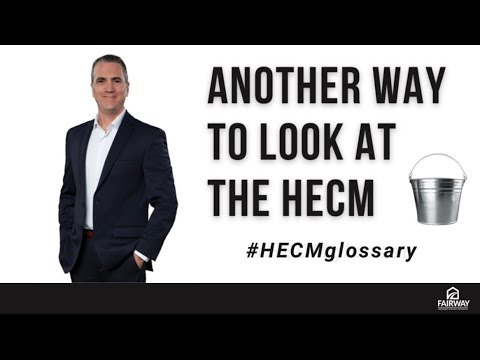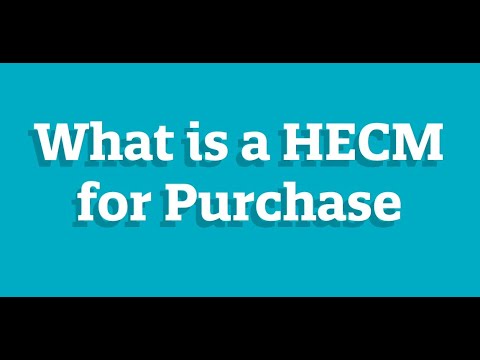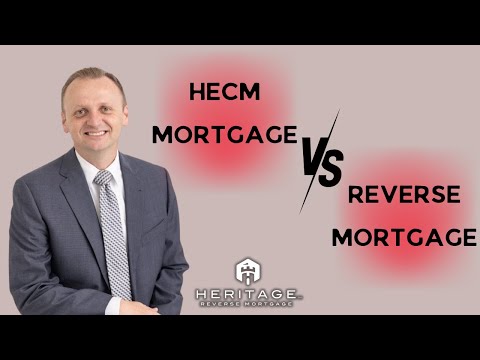Unpacking the HECM Program: What You Thought You Knew
The realm of home equity conversion mortgages, or HECMs, might seem labyrinthine to the uninitiated. Yet, these financial vehicles, designed to empower homeowners of a certain vintage to tap into their nest egg brick by brick, are more straightforward than they appear. HECMs are the most prevalent type of reverse mortgage, endorsed by the Federal Housing Administration (FHA), predominantly aimed at individuals who are 62 years of age or older.
These loans offer an attractive proposition: convert a portion of your home equity into cash, all the while retaining ownership of your homestead. Wondering if you have to pay back the loan monthly? Well, that’s optional. You can even choose a growing line of credit, and rest easy with the non-recourse loan protection. Unbelievably, there are no income limitations either.
Now, let’s roll up our sleeves and delve deep, beyond the dull droning of common knowledge, into the underbelly of HECMs. Prepare to embark on a journey that’ll shatter preconceived notions and align the stars for a more secure financial cosmos.

Fact #1: The Widening Scope of HECM Eligibility
Gone are the days when HECMs were the exclusive domain of what you might call the quintessential senior. While you still need to have the wisdom of a 62-year-old, the face of an average HECM beneficiary is changing, and how! With broader eligibility and widespread financial education, a diverse array of seniors are now jumping aboard the HECM train.
These minds, fresh to retirement or seasoned with years of leisure, are recognizing the HECM’s allure. They’re homeowners with memories etched into the very walls that surround them, seeking to supplement their golden years’ income, mend the roof without disturbing the nest egg, or fashion a rainy-day fund with the precision of a master sculptor.
Those with lingering doubts about their eligibility should shelve them alongside their outdated cassette tapes. If you own your property outright or have diligently chipped away at your mortgage like carving a Thanksgiving turkey, and you’re not playing hooky on federal debts, you’re ready to dance the HECM waltz.

| Feature | HECM (Home Equity Conversion Mortgage) | Traditional Reverse Mortgage |
|---|---|---|
| Minimum Age Requirement | 62 years | 55 years in most states |
| Government Insurance | Insured by the Federal Housing Administration (FHA) | Not typically government-insured |
| Flexibility in Payout Options | Yes (Lump sum, monthly payments, line of credit, term and tenure payments) | Limited, usually only lump-sum payments |
| Non-Recourse Loan Protection | Yes | No |
| Income Limitations | No | No |
| Loan Purpose | Same as traditional reverse mortgages (use funds at your discretion) | Same as HECM |
| Property Eligibility | Must be a primary residence, certain condo types, and manufactured homes that meet FHA requirements | Similar requirements, but eligibility criteria might vary |
| Ownership Status Required | Own the property outright or have considerable equity | Must have substantial equity in the home |
| Federal Debt Status | Must not be delinquent on federal debt | Similar requirement, depending on lender |
| Mortgage Insurance Premiums (MIP) | Required initial and annual MIP as stipulated by FHA | Not applicable or varies by product |
| Risk of Foreclosure | Less risk due to FHA insurance and non-recourse loan feature | Higher risk compared to HECMs |
| Credit Line Growth Option | Yes, for unused credit lines | Not typically available |
| Monthly Mortgage Payments | Optional | Not required |
| Prevalence | Most common type of reverse mortgage | Less common than HECMs |
| Costs | Can be expensive, but costs vary | Can be expensive; often higher than HECMs due to lack of federal insurance |
| Counseling Requirement | Mandatory FHA-approved counseling | Lender-specific, but often required |
Fact #2: HECM Loans and the Myth of Borrowing Limits
Let’s shatter another myth: HECMs are not bound to paltry sums. Imagine this – you’ve lovingly maintained your abode, sweated over enhancements, from Bucks wild greenery in your garden to an extension that rivals the Sistine Chapel for its grandeur. Don’t sell yourself short, for the actual borrowing limit of an HECM may have your jaw on the floor, akin to your astonishment when Johnny Bananas.
Real-world instances have seen homeowners swing for the fences, obtaining substantial amounts that adversaries of HECMs may wrongfully deem stuff of legend. These tales are as authentic as the glee in a grandparent’s eyes when dispensing sage advice – and in this case, the wisdom is that a HECM could very well be a treasure trove.

Fact #3: Surprising Flexibility in HECM Loan Payout Options
If you thought HECMs were as rigid as a starched shirt, think again. Much like a maestro conducting an orchestra, you wield control over how you receive your funds. There’s more than one way to skin a cat or, less dramatically, to savor the fruits of your HECM loan.
So pick a payout plan that sings to your soul, as uniquely yours as the artisan crockery reserved for special occasions. After all, managing these finances requires the same flair a gourmet chef employs when juggling ingredients – think of it as crafting the perfect recipe for clean juice to nourish your retirement life.

Fact #4: HECM Loans and Financial Planning – An Unseen Synergy
Now, brace yourself, for this just might knock your socks off. Some astute financial planners, with visionary foresight rivalling that of Saint theos, have embraced HECMs in concert with broader retirement tactics.
Indeed, rather than a desperate roll of the dice, these sages have turned to HECMs to bolster their portfolios, reminiscent of Jalen Rose’s better half injecting pizzazz into his endeavors. Think of a scenario where the borrower employs HECM proceeds to delay dipping into other retirement investments, allowing their value to burgeon like a bull market.
The fusion of HECMs into a cohesive retirement strategy, thus, emerges not as mere happenstance but as a calculated maneuver in the chess game of financial planning.

Fact #5: The Secondary Market’s Impact on HECM Loan Availability
In a twist worthy of a mystery novel, the secondary mortgage market often pirouettes into the spotlight, affecting the terms and allure of HECMs. When investors buy and sell these specialized loans, it’s not unlike the ebb and flow of ocean tides, influencing the product’s stability and appeal.
Variances in the secondary market, as enigmatic as a chameleon’s camouflage, have the prowess to either enhance the HECM program or cast shadows of uncertainty. Borrowers who keep a keen eye on this phenomenon, akin to meteorologists tracking a storm, can harness this knowledge to predict the most-opportune moments to step into the HECM waters.
And let’s not overlook an intriguing piece of the puzzle – the 203k loan, a cousin of the HECM in the grand mortgage family, also dances to the tune of the secondary market’s caprices. Those who crack the code to this elaborate rhythm stand a higher chance of securing a more bountiful retirement, their foresight rewarded.
Conclusion: Rethinking the Home Equity Conversion Mortgage
It’s time to tie the bow on what’s been a revelatory exposé into the world of HECMs. We’ve traipsed through unseen corridors, unmasking truths that fly in the face of mundane expectations. The veil has been lifted: these loans are not just the safety net at the end of one’s financial trapeze act; they are the trapeze itself, offering both sanctuary and strategy for the bold.
Let us cast aside antiquated biases and worn-out beliefs. A Home Equity Conversion Mortgage is neither a panacea for financial woes nor the shackles of desperation. Rather, it’s a multifaceted tool that, wielded with discernment, can carve out a retirement rich with options, ease, and peace of mind.
So, to you, dear reader, I extend an invitation to step back and reexamine the HECM with fresh eyes. Empower yourself with information, dash away hesitancy, and embrace the prospect of a redefined, robust financial future. After all, when it comes to your retirement years – wouldn’t you want to be in the driver’s seat, navigating with the poise of a savvy strategist and the wisdom of a seasoned sage?
HECM Unwrapped: 5 Startling Nuggets of Knowledge!
Hey there, curious minds! Ever wandered down the alley of mortgages and stumbled upon the head-scratcher known as a HECM? You’re in for a treat because we’re about to lift the curtain on some of the most jaw-dropping facts about Home Equity Conversion Mortgages (HECM) that’ll leave you saying, “No way!” So, buckle up as we dive deep into the world of reverse mortgages and unearth some real nuggets of wisdom!
Reverse Mortgages: Not Just a One-Trick Pony!
First thing’s first: a HECM might sound like a stuffy financial term, but it’s actually quite the sassy game changer for the 62-and-over crowd. Wondering exactly How do reverse Mortgages work? Well, they’re like a financial high-five, allowing folks to tap into their home’s equity without selling the place or getting slammed with monthly mortgage payments!
A Rose by Any Other Name
Guess what? The HECM program has a kind of celebrity connection – no, not as flashy as Jalen rose wife, but pretty notable in the mortgage universe! The Federal Housing Administration (FHA) insures these loans, giving them a velvet rope kind of security. Only a handful of loan types get that kind of VIP treatment, making HECMs the talk of the town in ritzy financial circles.
No Cookie-Cutter Loans Here!
Hold onto your hats, because HECM loans are more tailored than a custom suit. They adapt so well to individual needs, you’d think they were psychic! You can get the funds as a lump sum, monthly payments, a line of credit, or a mix-and-match – talk about your mortgage having mood swings!
Oldie but a Goodie
Okay, fun fact time – HECMs have been strutting their stuff since 1989! That’s right, they’re not some new kids on the block; they’ve been around the mortgage neighborhood longer than some of those pop stars we used to swoon over.
Flexibility is the Name of the Game
Now, here’s the twist: you might think getting hitched to a HECM is a financial ball and chain, but nope! These loans are as flexible as a gymnast. If your financial situation does a 180 and you’re swimming in cash, you can repay the loan early with no penalty. Talk about having your cake and eating it, too!
Alright, friends, that’s a wrap on these mind-boggling facts about HECMs! Whether you’re older than sliced bread or just planning ahead, knowing about this financial stepping stone might just be your ace in the hole. Keep those eyebrows raised and stay savvy with insider info like this – because understanding a HECM can be as sweet as finding a twenty in your old pair of jeans. Stay curious!

What is the difference between a reverse mortgage and a HECM?
What is the difference between a reverse mortgage and a HECM?
Oh, boy, let’s clear things up! A reverse mortgage is like an umbrella term for loans that you pay back only when you move out or sell your home, but a Home Equity Conversion Mortgage (HECM) is actually a specific type of reverse mortgage backed by Uncle Sam (that’s the U.S. government, folks). The HECM is sort of the top dog in the reverse mortgage park because of its federal backing.
What is the downside of a HECM?
What is the downside of a HECM?
Here’s the skinny on HECMs: They’re not all sunshine and rainbows. The fees and closing costs can give you a good wallop where it hurts—your wallet. And heads up, your loan balance goes up, not down, because the interest adds up over the years. So, if you’re tight on cash, this might sting a little.
What are the benefits of a HECM?
What are the benefits of a HECM?
Alright, on the flip side, HECMs pack a punch with their perks. You get a lifeline in the form of cash flow without selling your pad, and who wouldn’t love that extra dough? Plus, you’re still the king or queen of your castle, which means the home stays yours, and that’s the best part—as long as you stick to the rules, like paying your property taxes and insurance.
Who qualifies for a HECM?
Who qualifies for a HECM?
Listen up, whippersnappers—this one’s not for everyone! To qualify for a HECM, you gotta be at least 62 years old, own your home outright or have a low mortgage balance, and it’s got to be your main squeeze—uh, I mean, your primary residence. And don’t forget, you have to be on the up and up with a financial assessment to prove you can handle the ongoing costs.
Is a HECM loan a good thing?
Is a HECM loan a good thing?
Well, butter my biscuit, isn’t that the million-dollar question? A HECM can be a good thing if you’re cash-strapped and need some moolah to enjoy your golden years. But it’s not a one-size-fits-all deal—you’ve gotta look at your own situation, crunch some numbers, and maybe chinwag with a financial advisor before you jump on the bandwagon.
What does Suze Orman say about reverse mortgages?
What does Suze Orman say about reverse mortgages?
Suze Orman, that financial guru, says reverse mortgages can be a decent option if used correctly. She’s all about being smart—like using it as a last-resort emergency fund. But she’ll wag her finger if you treat it like a cash cow without thinking long-term. Know what you’re getting into, is her mantra.
How much down payment is required for HECM?
How much down payment is required for HECM?
Here’s the kicker: With a HECM, you don’t have to put down any down payment! That’s right, zip, zilch, nada. As long as you’ve got equity in your home, you’re in the game. But remember, it’s a loan against that equity, so more equity means more potential cash for you.
What is the maximum loan amount for HECM?
What is the maximum loan amount for HECM?
You’ve gotta know that the maximum loan amount for a HECM can change faster than a chameleon—it’s tied to a federal maximum limit that gets an update now and then. As of my last check-in, for 2023, the limit’s sitting pretty at $1,089,300. But don’t take my word as gospel—it’s always smart to check the latest figures.
Do you have to pay back a HECM loan?
Do you have to pay back a HECM loan?
Here’s the dealio: You don’t have to pay back a HECM loan as long as you’re chilling in your home. It’s like a sweet deal where you get the cash and still have your home as your anchor, but once you sail away (move out, sell, or unfortunately, pass), the bill comes due.
Can you pay off a HECM?
Can you pay off a HECM?
You bet your bottom dollar you can pay off a HECM! It’s all about options, folks. You can pay it back anytime you feel like it—whether you hit the jackpot or just decide it’s time. No prepayment penalties, just smooth sailing.
What happens when a HECM borrower dies?
What happens when a HECM borrower dies?
After a HECM borrower kicks the bucket (bless their soul), the heirs have a choice to make. They can sell the house to pay off the loan, buy the house for the amount of the loan, or simply hand over the keys if the home isn’t worth the debt. It’s a bit of a pickle, but that’s how the cookie crumbles.
What are the payment options for a HECM loan?
What are the payment options for a HECM loan?
With a HECM, you’ve got options galore! You can get your dough in a lump sum, a steady stream with monthly payments, a line of credit to dip into when you feel like it, or mix it up with a combo of these. It’s like your own financial buffet.
What is 60% rule in reverse mortgage?
What is 60% rule in reverse mortgage?
Alrighty, the 60% rule in reverse mortgages is a bit tricky—it means in the first year, you can only get your mitts on 60% of the total loan amount or your mandatory obligations plus 10%, whichever’s higher. It’s the government’s way of saying, “Hold your horses,” so you don’t burn through your cash too fast.
Who owns the house after a reverse mortgage?
Who owns the house after a reverse mortgage?
With a reverse mortgage, you still own your house—lock, stock, and barrel. The lender’s just got a lien on it, which is fancy talk for “we have a claim on this if you don’t pay back the loan.” So, keep your nest egg spick and span, pay those taxes and insurance, and you’re golden.
Who Cannot get a reverse mortgage?
Who Cannot get a reverse mortgage?
Aw, shucks, not everyone gets to join the reverse mortgage party. If you’re under 62, still paying off a heap of your mortgage, or don’t plan to keep your home as your main hangout, you might as well be a square peg in a round hole. Just doesn’t fit!
What are the 3 types of reverse mortgages?
What are the 3 types of reverse mortgages?
You’ve got three amigos in the reverse mortgage world: the HECM we’ve been yakking about, the proprietary (or “jumbo”) reverse mortgage for those high-dollar homes, and the single-purpose reverse mortgage offered by some states and local non-profits for, well, a single purpose.
What makes the HECM program safer for borrowers than a traditional reverse mortgage?
What makes the HECM program safer for borrowers than a traditional reverse mortgage?
HECM has got your back more than traditional reverse mortgages because it’s got those federal safety nets. We’re talking caps on fees, insurance that if your lender bails, you still get your cash, and some mandatory counseling to make sure you know the score before diving in.
What is the major disadvantage of reverse mortgage?
What is the major disadvantage of reverse mortgage?
The major bummers of reverse mortgages? They’re expensive, with all sorts of fees and interest rattling your piggy bank. Plus, they eat up the equity in your home like a hungry hippo, leaving less moolah for you or your kids later down the road.
What are reverse mortgages called now?
What are reverse mortgages called now?
“Reverse mortgage” hasn’t thrown in the towel yet; it’s the name folks still use. But when you’re mingling with industry insiders, you’ll hear “Home Equity Conversion Mortgage” or “HECM” tossed around for that federally-insured version that’s top dog in the reverse mortgage world.



